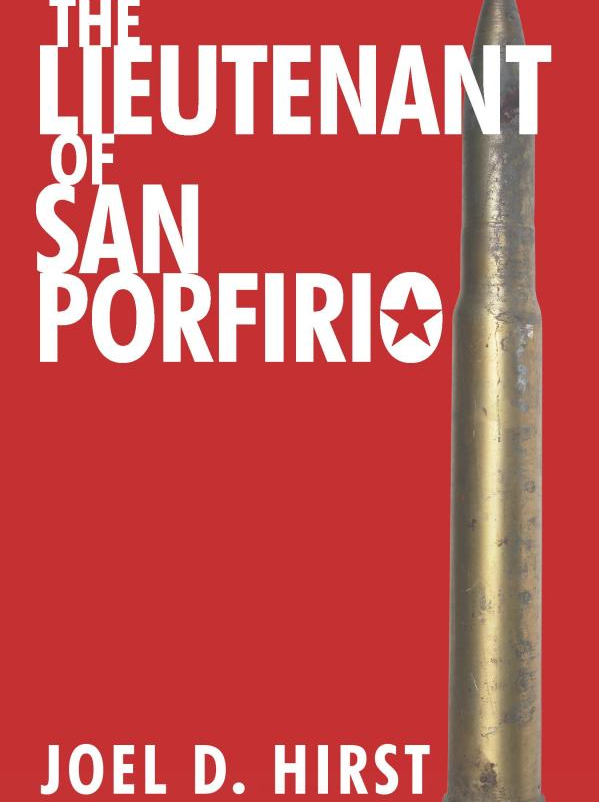Insightful look at daily life under Chavez’ authoritarianism
Review of Joel Hirst’s Novel “The Lieutenant of San Porfirio”, Universe, Inc, 2012
Click here to purchase “The Lieutenant of San Porfirio” at Amazon for $16.77
Joel Hirst is a young writer and social scientist who wrote a powerful novel that reflects the state of Venezuela under the rule of Hugo Chavez.
What a novel can do that a rigorously academic or even journalistic piece cannot do is to involve the reader in the day to day impact of living under an authoritarian revolutionary regime like the one Venezuela is experiencing today.
“The Lieutenant of San Porfirio” is not merely a fictional drama or a parody of contemporary Venezuela. Through the novel we can understand the why and how of Venezuela’s everyday reality.
Hirst grasps, through his intimate familiarity with a country where he spent part of his life, the major transformation of a society once considered to be one of the most prosperous and free in Latin America.
The novel focuses on a number of characters, each of which represents something different: The resented and socially underprivileged lieutenant, Juan Machado who finds in the revolution a way to achieve the power and dignity he never had while at the same time pursuing his desire for revenge against the upper class. Machado becomes an effective instrument of revolutionary repression and a ruthless character that does not hesitate to use cruelty and murder if necessary.
 Doña Esmeralda is an old oligarch who in the spirit of Boris Pasternak’s Dr. Zhivago is forced to allow poor individuals into her house. Doña Esmeralda laments the loss of her household, while at the same time not hiding her authentic contempt for the socio-economically marginal. She behaves like an aristocrat; insensitive to the neediest. Under the revolution she falls in disgrace and her status changes dramatically. While painting the character of Doña Esmeralda, the author does not necessarily show sympathy for the victim of a revolution he despises. He gives us a realistic picture of the aloofness and the mistreatment to which workers were subjected on the farms under the old regime.
Doña Esmeralda is an old oligarch who in the spirit of Boris Pasternak’s Dr. Zhivago is forced to allow poor individuals into her house. Doña Esmeralda laments the loss of her household, while at the same time not hiding her authentic contempt for the socio-economically marginal. She behaves like an aristocrat; insensitive to the neediest. Under the revolution she falls in disgrace and her status changes dramatically. While painting the character of Doña Esmeralda, the author does not necessarily show sympathy for the victim of a revolution he despises. He gives us a realistic picture of the aloofness and the mistreatment to which workers were subjected on the farms under the old regime.
Testimonies of such mistreatment are numerous up to the point that the repressive skills of the enforcers of the oligarchy are later used to serve the new revolution. This repressive character is later embedded in the person of Enrique who confronts Lieutenant Machado who happens to be one of Enrique’s past victims. That confrontation of two active supporters of the revolution is dramatic and also shows another component of the revolution: the high number of opportunists that have become part of it.
Another character in the novel is Freddy, a typical liberal –minded American that identifies with the struggles of the Third World. He is fascinated by the revolution despite the fact that he falls victim to the violence and robbery of the revolutionaries. He feels somewhat disappointed by these indecent acts but he continues to believe in the justice of the revolution. At one point his excitement about the revolution leads him to violence. He hits an anti-government student leader (Pancho) with a bottle and sends him to the hospital with multiple injuries
“A revolution must be bloody”, Freddy is told. The American ends up accepting this but the revolutionaries’ contempt for him does not fade away despite his loyalty.
Freddy is finally betrayed by the corruption of the revolution he admires and his fate falls in line with the enemies of the revolution.
Hirst portrays the element of violence extremely well. Violence unfolds as revolutionaries like the character Geronimo preachs the truth and dogma of the revolution. Violence develops because the revolution finds an enemy to blame for the suffering of the people the revolution is trying to save. Violence increases because the revolution recruits criminal elements as exemplified in the character of the murderous Quispe. Quispe is portrayed as a monster capable of committing the worst types of crimes.
Hirst exposes, in a very subtle way, the cynical, criminal, and illegal character of the revolution. On the other hand, he does not depict the opponents of the revolution in a good light either. The general state of lawlessness also corrupts the politicians who can easily be bought while betraying the principles they had fought for.
“The Lieutenant of San Porfirio” is the first novel to describe life under the Bolivarian revolution. In addition, this very well written and intriguing book includes other elements that play out in the Bolivarian Revolution such as anti-Semitism, drug trafficking and callous government impunity.
The reader not only enjoys a dynamic and intriguing story but derives a good sense of what contemporary life in Chavez’s Venezuela is all about.
Luis Fleischman is co-editor of the Americas Report also the author of the upcoming book “Latin America in the Post-Chavez Era: The Security Threat to the United States”
- The crisis in Chile: What is happening? - November 21, 2019
- Would-be dictator-for-life calls Bolivia’s constitutional restoration a ‘coup’ - November 14, 2019
- The U.S. Should Keep American Companies’ Assets & Presence in Venezuela - October 28, 2019
